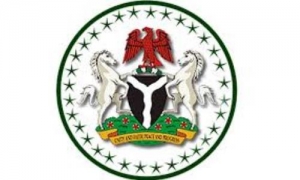$800m worth assets frozen by British government under Congo sanctions

Assets worth �580 million ($803 million) belonging to dozens of militia leaders, army officers and private organizations connected to Democratic Republic of Congo (DRC) have been frozen by the British government as requires by the EU as parts of sanctions that had been imposed by the UN on the country.
The figures which was published on the UK parliament website by Economic Secretary, John Glen on Monday, was his response to questions by members of parliament about the sanction on DRC showing the total sum of seized assets with no details of the assets. The publication cast a spotlight of the number of illegal financial enterprises targeted by international powers trying to increase the pressure on President Joseph Kabila to resign.
The assets frozen by the the British government includes those owned by individuals and groups, including warlords convicted by the International Criminal Court, a Congolese general who was convicted of rape, a gold trading company in neighboring Uganda and two now-defunct Congolese airline companies. Several militia groups, government officials and military officers are reported to have acquired wealth for themselves by trafficking minerals, imposing illegal taxes and stealing public funds.
John Glen said sanctions from 2005 to September 30, 2016 are all covered by the data before the EU's sanctions on 15 state officials and a militia leader, late 2016 and in 2017. The sanctions were over apparent human rights abuses and delays replacing President Kabila, whose term finished in December 2016 but has refused to organize new elections to replace him. He added that the measures apply to holdings in the United Kingdom and British Overseas Territories and that figures for 2017 freezes are still being compiled.
In 2003, the United Nations first imposed sanctions and arms embargo in Congo after a five-year regional war in the east of the country which killed millions, mostly from hunger and disease.
Congo ranks 176th out of 188 countries on the U.N. Human Development Index but is Africa's leading producer of copper and the world's top miner of cobalt.
The figures which was published on the UK parliament website by Economic Secretary, John Glen on Monday, was his response to questions by members of parliament about the sanction on DRC showing the total sum of seized assets with no details of the assets. The publication cast a spotlight of the number of illegal financial enterprises targeted by international powers trying to increase the pressure on President Joseph Kabila to resign.
The assets frozen by the the British government includes those owned by individuals and groups, including warlords convicted by the International Criminal Court, a Congolese general who was convicted of rape, a gold trading company in neighboring Uganda and two now-defunct Congolese airline companies. Several militia groups, government officials and military officers are reported to have acquired wealth for themselves by trafficking minerals, imposing illegal taxes and stealing public funds.
John Glen said sanctions from 2005 to September 30, 2016 are all covered by the data before the EU's sanctions on 15 state officials and a militia leader, late 2016 and in 2017. The sanctions were over apparent human rights abuses and delays replacing President Kabila, whose term finished in December 2016 but has refused to organize new elections to replace him. He added that the measures apply to holdings in the United Kingdom and British Overseas Territories and that figures for 2017 freezes are still being compiled.
In 2003, the United Nations first imposed sanctions and arms embargo in Congo after a five-year regional war in the east of the country which killed millions, mostly from hunger and disease.
Congo ranks 176th out of 188 countries on the U.N. Human Development Index but is Africa's leading producer of copper and the world's top miner of cobalt.
Related News
Leave a comment...





